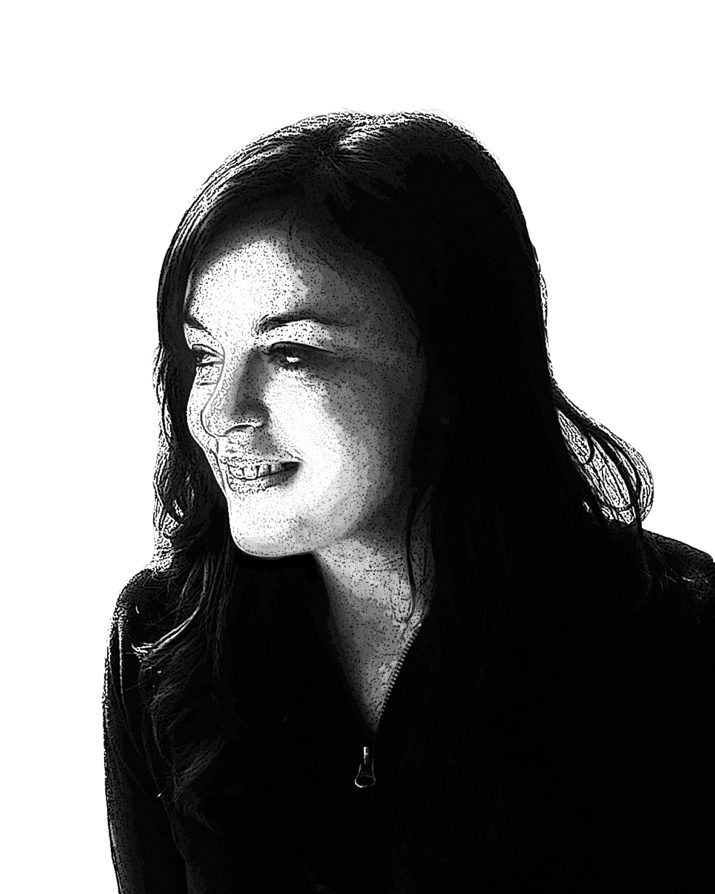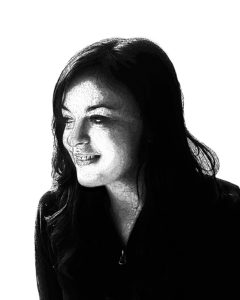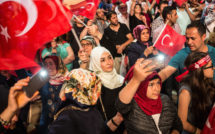

In her research article in Perspectives on Europe: European Solidarity, Sarah French Brennan explores the many tribulations minority asylum seekers face, and the narrow patterns and behaviors they must conform to in order to be granted safety. Brennan opens with Aziz, a young Afghani man awaiting refuge in a small Dutch town. He has recently fled his home in Kabul, where his boyfriend was murdered by his own family. Aziz has applied for asylum and been rejected twice, most recently because the court decided his case was not credible, unconvinced he was gay. “For now,” Brennan writes, “Aziz’s case lies in limbo.” He is trapped in a detention center, unable to start a new life in the Netherlands and unable to go home (legally he cannot be deported because Afghanistan is considered by the Dutch government to be unsafe for LGBT individuals). “The logic is dizzying,” Brennan says, “nauseatingly so, but not unusual.”
As a PhD Candidate in Columbia University’s Applied Anthropology program, Brennan focuses on issues of nationalism, sexuality, gender, and religion in the Netherlands. Her research aims to explore the circumstances in which strategies, stories, and social lives are shared between asylum seekers. “I’m more specifically interested in the role of various advocacy organizations in shaping experiences of asylum seeking,” she says. “Questions about how nationalist and Islamophobia currents in the Netherlands interact with asylum have also become urgently important looking at these issues.”
—Kayla Maiuri for EuropeNow
EuropeNow What inspired you to examine the process of claiming asylum as a Muslim sexual minority?
Sarah French Brennan A “who,” not a “what,” inspired my research—Gloria. A self-identified Muslim lesbian from Uganda, Gloria continually inspired and sustained me, and I’ll always be in debt to this indomitable woman. I met her early on in my research, so regarding what initially animated my interest in this topic, I ought to give thanks to some wonderful friends from my time living in Egypt. They pushed me to examine those lives lived at the intersections of powerful historical and ideological forces, such as sexual nationalism, cultural imperialism, and the politics of humanitarianism.
“LGBT”[1] Muslims are at an interesting intersection in the Netherlands. Within national imaginaries of the Netherlands are ideas of the country’s great history of progressivism, and having been the first country in the world to legalize same-sex marriage, it is also seen by many as a “gay capital.” Even in a speech railing against “the rising tide of Islam,” and calling for the halt of migration to the Netherlands, far-right extremist politician Geert Wilders mentions homosexuals being jailed and threatened in Iran, and stipulates that, “when it comes to asylum seekers, it’s a different story.” It may be that they are tolerable because they are seen to somehow manifest subversion of Islam, a religion that has been stamped exceptionally and uniquely homophobic in public imagination. However, in practice, it is unclear whether LGBT asylum seekers are granted asylum at higher rates than others, particularly recently, as refugees fleeing violence in Syria are being given official preference.
EuropeNow In your article “Specter of the Fraud: Muslim Sexual Minorities and Asylum in the Netherlands” you explain that a successful asylum claim must be deemed credible by the asylum system, “using the ideological idioms of sexuality, experience, and culture that are intelligible to Dutch officials.” What kind of narrative are these officials looking for?
Sarah French Brennan The asylum procedures require specific elements to narratives. Asylum seekers (whatever the reason for their asylum claim) are asked to chronicle in excruciating detail their moments of greatest fear and pain to an asylum officer, a complete stranger in a strange land. In addition to life histories, and various dates and places, as an LGBT asylum seeker you are asked to describe your first crush, your first beating, the last thing your father said, the threats that inspired the most terror, the last place you went before leaving for the Netherlands, and to produce as much documented evidence as possible to corroborate it all. What does it do when identities are constantly re-enforced as centering around an experience of violence?
“Country reports” are available for judges to reference in their cases. These reports are usually compiled by NGOs, often using information from organizations such as Amnesty International and Human Rights Watch, detailing current conditions in a specific country or region. Depending on the grounds of the asylum claim, the report may highlight different perspectives, such as “conditions for women” or “conditions for LGBT individuals.” The judge can then compare this information to the evidence presented by the asylum claimant. While good-faith efforts may be made in some cases to view cultural context as diverse, fluid, or nuanced, both asylum seekers and advocacy workers have said that ultimately, asylum seekers are required to conform to narrow definitions of sexual categories in order to gain refugee status.
EuropeNow Could you give us an example of a case in which an asylum claim was denied because the applicant’s appearance and story did not fit the stereotypes of an LGBT individual?
Sarah French Brennan Although rejected applicants for asylum receive letters from the court explaining the decision, it can be difficult to pin down the fuller explanations, which may lie in unacknowledged and perhaps unnoticed biases, assumptions, and stereotypes. However, when a judge must make a decision partly based on whether an asylum seeker is credible, it is unavoidable that personal ideas of what is credibly “LGBT,” what fears are “well-founded,” and whose suffering is sufficiently verified, will affect the process.
One man with whom I spoke received a rejection letter from the asylum court that told him the documents he had sent to him by a brother-in-law in his home country of Afghanistan were not credible. He was appealing his rejected asylum claim, and retrieved the documents after having been told that he needed documentation to prove that he was truly under threat in Afghanistan. This evidence was meant to demonstrate that the parents of this man’s boyfriend, who had murdered their son after discovering their relationship, then asked permission from community leaders to also murder the man I interviewed. The court found these documents not credible because, he told me, they did not believe that his brother-in-law would help him, as surely all Afghani family members would have completely rejected a gay relative. The possibility that an Afghani Muslim brother-in-law would be anything but thoroughly and exclusively homophobic to the point of putting the relative’s life at risk was not credible to the court.
EuropeNow Was there anything you were particularly surprised by during your research process?
Sarah French Brennan This may sound a bit banal, but something that surprised me was the severity of the mundane in the lives of many of the asylum seekers with whom I spoke. Boredom, unease, loneliness, uncertainty, lack of privacy—this limbo in which they did not know when they would speak with a lawyer, when they would be moved at a moment’s notice to a new camp, when their case would be heard, when their decision would be given—this vacuous zone of psychological and visceral deprivation could be so utterly depleting that some described it as worse than the perilous journey into Europe from the Middle East or Central Asia. I can’t help but think that this fact of asylum seeker life is not lost on policy-makers or those within the asylum system, and (in a most cynical interpretation) works as a mechanism to clear the asylum applicant dockets and deter others from attempting to make the Netherlands their sanctuary from life-endangering circumstances.[2]
EuropeNow In your article, you discuss the resurgence of xenophobic, populist nationalism in the Netherlands (and across Europe). How does this play a role in granting asylum to Muslim sexual minorities?
Sarah French Brennan The role of xenophobia, nationalism, and Islamophobia specifically in the granting of asylum is an open question. Other than what I argued above about subconscious biases informing ideas of what is “credible,” it is difficult to say how these forces directly impact any individual case. However, as impervious to politics as the agencies that deal with asylum aim to be, there is political pressure at both local and national levels regarding anxieties around “demographic change,” resource allocation, and national security. Despite proclaimed commitments to the universality of human rights, in practice, refugees are often met with suspicion. Muslim migrants in particular face the suspicion that their loyalty lie elsewhere and therefore assimilation into the (presumed homogenous) “native” population’s values and ways of life will be more difficult or impossible.
EuropeNow Is anything being done to combat these issues?
Sarah French Brennan Going back to the question about things that surprised me—I was truly amazed by the number of individuals and groups working on all levels to alleviate or entirely reform this fraught asylum system. Individuals take up causes where they see the need, organizing networks of other individuals willing to take in for a night or a month LGBT asylum seekers who have faced discrimination within the refugee camps. Migrant and/or LGBT organizations make great efforts to reach out to asylum seekers in the camps and connect them to resources, information, and social networks. Academics like Laurens Buijs and Thomas Spijkerboer (among many others) speak with and petition national and international governing bodies about the dire need for structural reform.
The Netherlands has done away with problematic de jure requirements that still function in other EU member states, including “the discretion requirement” (wherein an applicant’s case will be denied if they are judged able to cover up their sexual orientation or gender identity to avoid persecution), and a requirement that the applicant’s home country must specifically legally criminalize “homosexuality” (while an individual may still be prosecuted for “crimes against religion” or “perversion,” as is in the case in Egypt and elsewhere; or where non-state actors, such as community or militia members, constitute a threat to LGBT individuals). However, as these obstacles are removed, asylum cases have come to rely heavily on the credibility of the applicant. In addition, several of the participants in my research reported being asked about their ability to be “discreet” and hide their sexuality if they were to return to their home countries. It seems that while asylum laws have changed, the realities of the interview process and decision-making may be still fraught with these problematic practices.
As a graduate student at Columbia University’s Teachers College, Sarah French Brennan has focused on the contexts, practices, and technologies involved in the production of sexual identities and minority subjectivities. She completed her MA thesis exploring queer communities in Cairo in 2013, and during the course of her PhD fieldwork became a Visiting Research scholar at the Vrije University in Amsterdam.
Kayla Maiuri is the editorial and publications associate at the Council for European Studies, and the associate editor of EuropeNow. She holds an MFA in fiction from Columbia University, where she served as fiction editor of Columbia: A Journal of Literature & Art. She is currently working on her first novel.
References:
[1] I put LGBT in quotes because many people do not understand issues of sexuality and identity in ways that conform to these categories; and others actively reject them as limited, limiting, and originating from a Western context, inappropriately applied transnationally
[2] A few more surprising facts I came across: 1) It’s okay to keep an owl in an asylum center as long as it remains on your shoulder; 2) If you don’t know the name of a gay club in your home country’s capital city, you’re probably not “actually gay” according to several asylum rejection letters; 3) The asylum authorities would very much like for asylum seekers to stop sending them pornographic images of themselves as “proof” that they are LGBT, but how one is to prove this otherwise is an open (and extraordinarily fraught) question; 4) On the upside, most European countries no longer use “phallometric tests” to determine if someone is gay.
Published on November 1, 2016.




